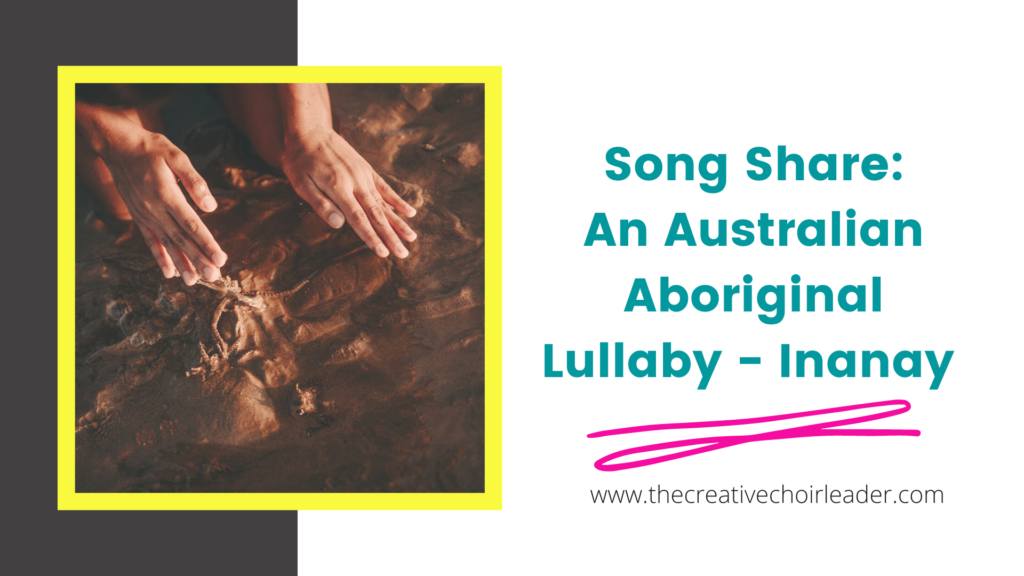

Sharing songs from different cultures helps us to become aware and learn more of those cultures. ‘Inanay’ is an Australian aboriginal lullaby. It is sung in Yorta Yorta, the language of one of the Torres Strait Islander Tribes.
A definitive translation is not possible, however, some sources say this is a song about a type of Australian lizard called a goanna. In the song the singers say ‘choo’ which possibly represents shooing the goanna away.
This version of the song is taken from the popular female aboriginal singing trio called Tiddas.

Lou Bennett, from Tiddas explains more about how she learnt the song and it’s origins:
“…in my travels I met the Mill sisters (Aunties from Thursday Island), and they told me that they had a version of this song, but the words were slightly different. This was due to the song travelling on what we know as ‘songlines’, a complex philosophy found in indigenous cultures throughout the world. Part of this concept is the singing of the land (letting the land know who you are, and where you’re from)…”
“Lou Bennett learnt this song from her cousins and her grandmother in the late 1980s while working at Victoria’s first established Aboriginal college, Worawa. No direct translation has been given, but the song is believed to be a lullaby or a children’s song. The liner notes for ‘Inanay’ simply say that it is a ‘traditional aboriginal song (words not available)’. Bennett has suggested that the song travelled on ‘songlines’ which was evidenced in a version on Thursday Island sung by the Mills Sisters. Research suggests the song is in the Mabuyag Island’s Kala Lagaw Ya language but it could also be a Darnley Island song from Eastern Torres Strait. It may have travelled to the Torres Strait through the Pacific from Hawai’i.” -From “We are Australian”: An ethnographic investigation of the convergence of community music and reconciliation
Performing
I have always performed this piece with the clapping of sticks on the off beat to accompany the singing as in the Tiddas version. In the aboriginal culture these are called ‘clapsticks’. Here is a picture of my clap sticks:

If you don’t have clap sticks, you could use claves or two pieces of wooden dowel.
Finally I leave you with a recording of Tiddas singing this song:
If you would like to hear more of Tiddas then I would really recommend listening to their albums here
Want weekly creative ideas to help you become a better choir leader and deliver inspriring results with your choir? Sign up for our 1-2-1 Creative Choir Leader Newsletter.






